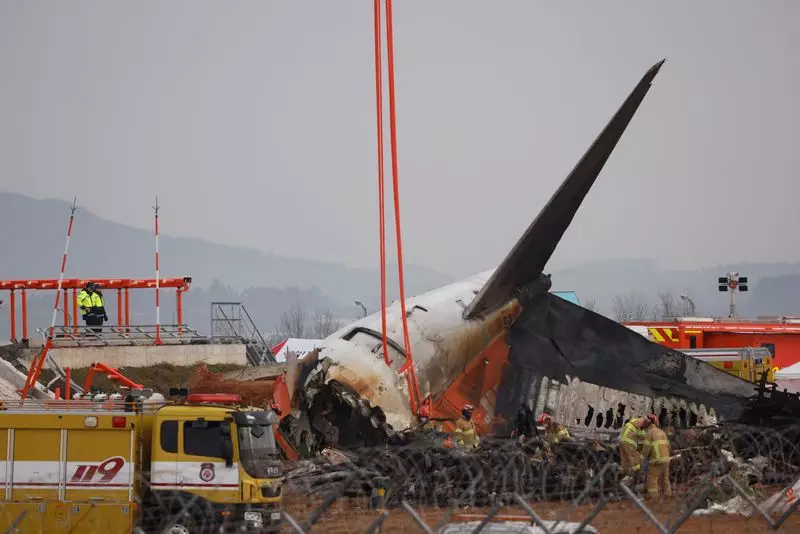As South Korea grapples with the fallout from its deadliest air disaster, the implications for the aviation industry are profound. The tragic crash of a Jeju Air flight has not only resulted in immense loss of life—179 people perished—but has also triggered a significant crisis in public confidence, manifesting starkly in the stock market. On the Monday following the disaster, shares of Jeju Air plummeted to an unprecedented low, dropping as much as 15.7% during trading, as investors reacted vigorously to the unfolding tragedy.
The market response reflects deep-rooted concerns regarding the credibility and safety of budget airlines in South Korea. With Jeju Air being the country’s third-largest airline, its fallout reverberated through the entire sector. The airline’s market capitalization was significantly diminished, erasing approximately $65.2 million in value. Further complicating matters, Jeju Air’s parent company, AK Holdings, also saw its shares decline sharply, reaching a 16-year low. The numbers tell a story of investor panic and a market that is inherently volatile following safety concerns.
In response to the incident, South Korea’s acting President Choi Sang-mok ordered an immediate and comprehensive review of safety protocols across the nation’s airlines. The emergency inspection highlights the government’s acknowledgment of the need for enhanced regulatory oversight amid a crisis that has severely undermined public trust in air travel. Such seismic shifts in governmental policy often indicate broader recognition of systemic issues within industry protocols, making this moment pivotal for the future direction of aviation safety in South Korea.
The implications of the crash extend beyond airline shares; they also touch the broader travel and tourism sector. With reports indicating a substantial increase in cancellations of tour packages, the economic ramifications are already apparent. Travel agencies swiftly responded to the deteriorating consumer sentiment by halting advertisements and promotional events, showcasing an immediate reaction to the dire circumstances. Affected operators have reported cancellations doubling and bookings plunging by half—signaling a chilling impact on an industry that relies heavily on consumer confidence.
Despite the immediate turmoil, some analysts suggest that the structural demand for travel may not be fundamentally weakened in the long term. Yang Seung-yoon, an analyst at Eugene Investment Securities, articulated that while short-term cancellations are expected, the broader trajectory of travel demand is likely to remain intact. This sentiment is crucial, as it delineates the difference between a temporary crisis and a lasting paradigm shift in consumer behavior toward budget airlines.
The repercussions of the Jeju Air tragedy extend far beyond the cockpit. The incident serves as a critical reminder of the interconnectedness of safety, corporate credibility, and consumer trust in the aviation sector. As South Korea seeks to navigate the challenges posed by this disaster, the aviation industry must simultaneously confront and endeavor to rectify its vulnerabilities in order to restore public faith.

